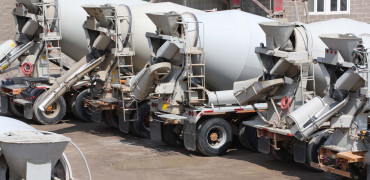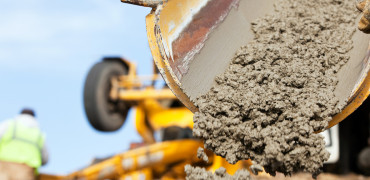On the 5th of July 2021, the Guardian published an article claiming that one of the biggest housebuilders in the UK, Taylor Wimpey, opposed government plans to cut home emissions saying “the firm also argued against heat pumps, which are proposed as a replacement for gas boilers”.
This was revealed by ‘Unearthed’ who had made a Freedom of Information request into responses made to government during their consultation process with industry into their proposed Future Homes Standard.
The Future Homes Standard is looking to improve the energy efficiency of all new build homes from 2025 by reducing carbon emissions by 75-80% compared to those being built under the current building regulations and the government published the outcomes of the consultation earlier this year.
Taylor Wimpey told the government in the consultation that “There is a lack of evidence to support the viable delivery of the Future Homes Standard of 75-80% less CO2 emissions within the proposed timescale with existing skills training and supply chain availability”.
We shouldn’t need to wait for government legislation to build high-quality, eco friendly, zero carbon homes
Doing the right thing
The push-back by Taylor Wimpey really isn’t a big surprise to me.
We have a house-building industry that in the past, has been very reluctant to change.
Taylor Wimpey may have a point that skills training and existing supply chains may not be able to change and adapt fast enough to meet the governments deadlines, but that is a systemic problem with our industry.
We leave everything too late and we don’t adapt fast enough.
We also wait for government to bring in legislation before we do the right thing.
Tesla didn’t wait for government legislation to come into force before developing their electric cars and it is now the most valuable car company on earth. They knew what was the right thing to do and they got on with it.
Now most other car companies are trying to catch up with them!
Heat pumps
One of the big announcements the government has made is that it is banning gas and oil-fired boilers in all new build homes from 2025.
This is a great step forward when we consider that most CO2 emissions come from burning fossil fuels and with 15% of the UK’s total greenhouse emissions comes from the heating of homes.
Taylor Wimpey stated in their consultation response that alternative ways of heating our homes, such as using air source heart pumps instead of fossil-fuel combi boilers, are more expensive to install and to run.
But, that is like saying we should never have legislated for the installation of cavity wall insulation in new build homes because the price of insulation was going to make things more expensive!
We all agree that insulating our homes is the sensible and right thing to do (personally i think our insulation standards for new build homes should be so much higher!) and we need to see the ban on burning fossil fuels to heat our home as the right thing to do too.
Heat pumps versus Gas
Is a renewable energy powered air source heat pump more expensive to run than a gas guzzling boiler?
Many could argue the case back and forth, but there is evidence to suggest that the running costs of a very well installed air source heat pump system doesn’t cost anymore than a gas system.
It is worth keeping in mind that the price of gas in the UK is a staggeringly cheap and the cost of electricity is more expensive, but if we agree that heating our homes using renewable, green electricity rather than burning gas is the right thing to do, then the energy producing industries need to change to allow us to do that in the most affordable way.
I know they are pushing to do this with Heat Pump Specific Tarriffs.
You could also argue that having a super-insulated hot water storage tank (which you need with an Air Source Heat Pump), heated using low-tariff electricity is more running-cost and environmentally efficient than a combi boiler, which can take some time to give you hot water and waste water while you wait.
And finally, the argument that Air Source Heat Pumps are less reliable than a gas combi boiler in cold weather is just tosh!
Radical change
It is now up to the home building industry to bring in the skills and training needed as well as radically changing its supply chains to make this happen.
We have to remember that the UK was the first major country to make it law that greenhouse gas emissions will be net-zero by 2050.
So it’s a legal requirement for us to hit this target!
Just because the home building industry has been slow to changes in the past, doesn’t mean that we should be slow to change in the future.
We need to crack on, which means there has to be radical changes in the way train and retrain installers, how we change our supply chains to introduce more innovative and green heating and power technolgies and how energy companies adapt to help achieve a green economy.
My biggest criticism of the homebuilding industry is that we shouldn’t have been waiting around for the government to legislate for us to build the high-quality, eco friendly, zero carbon homes the country so deeply needs.
We should have been doing the R&D and product development over the last 20 years to do this anyway.
Thankfully some companies have been, but everyone else now needs to catch up and fast!
George Clarke is a TV presenter and architect



